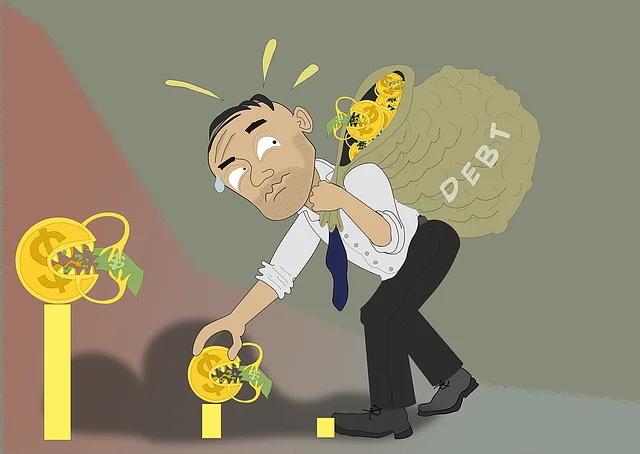8 habits of people who never go into debt

We often think of debt as a nuisance, not our habit. Their appearance is the result of how we live. Changing your attitudes and spending preferences will make it easier to deal with debt. This is exactly what people who never go into debt do – we will tell you about 8 habits that help them.
They keep track of their budget
Knowing your budget helps you manage it effectively and avoid getting into debt. It is necessary to draw up a complete “picture” of finances: what kind of income you receive in a month, what inalienable expenses you pay, how much money you manage to save.
Include in the list of expenses rent, utilities, groceries, payments for communication and the Internet, the cost of drugs, gasoline, money that can be spent on clothes. It should include everything that you can consider as ordinary expenses. Be sure to indicate everything there to the smallest detail. For example, if you drink coffee 5 times a week in a cafe near work, be sure to indicate that too. You do not need to stop this habit – the goal of budget management is to count on it and not go into negative territory.
It is also useful to view the expenses statistics in the bank application you are using. Often, it is already divided into payment categories. It is necessary to compare income and expenses. If your income is less than the amount you are spending, you should think about reducing your monthly spending.
They invest in their future
Investing in their future is a habit of people far from debt. They know that spending money on something that will bring benefits in the future is a way to improve and increase their finances. Therefore, they invest in their education, which will help them later find high-paying jobs. You can also put the amount of money on a deposit at interest – funds cannot be withdrawn until a certain period to increase them.
They don’t use credit cards
Credit cards can multiply our debts severalfold. This is due to the cost of service, interest payments, and changes in terms of use if we do not deposit money on time. We do not always monitor these parameters thoroughly, and as a result, it becomes very unprofitable to use a “free” credit card.
If you have a credit card, you need to transfer funds to it before interest is charged due to late payment. And it is imperative to keep track of what commission is charged for use from it – there are often cases when it suddenly increases.
And you shouldn’t pay for large purchases with a credit card – it is better to use it as a last resort. For example, if there are a couple of days left until the paycheck, the funds have run out, and you want to buy groceries. But it’s better not to bring it to this – “credit” money will still have to be replenished with real money, and you will have to make adjustments to the budget plan for the next month.
They are moderate in spending
People who are out of debt don’t avoid spending; they make sure not to overspend. They do it with confidence when they shop because they know exactly how much they can spend. They also don’t need to buy things to feel good – so-called rash purchases. They can have a great time without spending a dime.
They set financial goals
Debt-free people know how to set financial goals. But this is not as easy as saying, “I want to pay off all my debt.” The first thing you need to set a financial goal is motivation. Debt-free people actively plan to get what they want, rather than just talking about their problems.
For example, you want to save up to pay the first installment of your mortgage. Your goal should be to get a mortgage; I need 600,000. To do this, you need to pay off all my debts first. To do this, you need to decide which debt needs to be paid off first and which ones after it. To do this, you need to revise your budget and find an additional source of income.
They learn financial literacy
High school and university do not teach how to manage money in everyday life. And we often don’t learn enough from our parents to manage our budget effectively. Debt-free people understand this and learn to manage money throughout their lives. They are interested in financial literacy – they read special books and articles, listen to podcasts, and follow the latest ideas – for example, ways to save money and not spend too much.
They surround themselves with like-minded people
Imagine that you are trying to get rid of debt, and in your environment, “credit life” is considered the norm. Your friends buy expensive equipment and cars in installments and do not understand why you deny yourself this. Or you are criticized for refusing to have lunch in a cafe several times a week because you are trying to save money. It is challenging to stay motivated and not “get lost” in impulsive spending if no one supports you in your desire to get rid of debt.
And if you surround yourself with people who have similar goals and lifestyles, it will be much easier to fulfill your plans. This does not mean that people out of debt refuse to communicate with those who do not feel uncomfortable with such a lifestyle. It’s just worth looking for additional support if you don’t have it yet – for example, in financial literacy courses or forums on the Internet, you cannot find “real” interlocutors with similar views.
They have savings for a rainy day
People out of debt have an emergency plan. These tools can be used if something unexpected happens – for example, a car breaks down or is laid off at work. Be sure to keep in mind that a credit card will not work for the formation of such a “fund” – you will go even more into debt if, in the end, you cannot pay off the borrowed funds.




